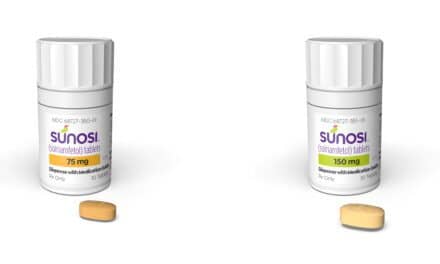Tirzepatide reduced the number of breathing interruptions during sleep and improved other aspects related to OSA in patients with obesity and OSA.
Summary: New evidence published in the New England Journal of Medicine demonstrates that tirzepatide, a drug developed for diabetes, significantly reduces the severity of obstructive sleep apnea (OSA) in patients with obesity. Conducted by researchers at the University of California San Diego School of Medicine and international collaborators, the study showed that tirzepatide led to a significant decrease in breathing interruptions during sleep and improved other aspects related to OSA, such as cardiovascular risk factors and body weight.
Key Takeaways:
- Tirzepatide, known to manage type 2 diabetes, significantly decreased the number of breathing interruptions during sleep in patients with obesity.
- Some participants using tirzepatide reached a point where CPAP therapy might not be necessary, indicating the drug’s potential to offer an alternative treatment for OSA.
- The drug therapy also improved cardiovascular risk factors and body weight, highlighting its dual benefit in treating both sleep apnea and obesity.
Researchers at the University of California San Diego School of Medicine and international collaborators have discovered that tirzepatide, a drug used to manage type 2 diabetes, shows promise as a drug therapy for obstructive sleep apnea (OSA).
The results, published in the New England Journal of Medicine, highlight the treatment’s potential to improve the quality of life for those affected by OSA. Tirzepatide is the only approved GIP (glucose-dependent insulinotropic polypeptide) and GLP-1 (glucagon-like peptide-1) treatment for chronic weight management, commercialized as Zepbound in the United States and Mounjaro in some global markets outside the United States.
“This study marks a significant milestone in the treatment of OSA, offering a promising new therapeutic option that addresses both respiratory and metabolic complications,” says Atul Malhotra, MD, lead author of the study, professor of medicine at University of California San Diego School of Medicine and director of sleep medicine at UC San Diego Health, in a release.
OSA can result in reduced oxygen levels in the blood and can also be associated with an increased risk of cardiovascular complications, such as hypertension and heart disease. Recent studies, also led by Malhotra, suggest that the number of OSA patients worldwide is close to 936 million.
International Study and Findings
Conducted in two phase III, double-blinded, randomized, controlled trials, the new study cohort involved 469 participants diagnosed with clinical obesity and living with moderate-to-severe OSA. They were recruited from sites in nine countries, including the United States, Australia, and Germany. Participants either used or did not use continuous positive airway pressure (CPAP) therapy. Patients were administered either 10 or 15 mg of the drug by injection or a placebo. The impact of tirzepatide was evaluated over 52 weeks.
Researchers found that tirzepatide led to a significant decrease in the number of breathing interruptions during sleep, a key indicator used to measure the severity of OSA. This improvement was much greater than what was seen in participants that were given a placebo.
Importantly, some participants who took the drug reached a point where CPAP therapy might not be necessary. Considerable data suggest that a drug therapy that targets both sleep apnea and obesity is beneficial rather than treating either condition alone.
In both studies, tirzepatide achieved all primary and key secondary endpoints for both the efficacy and treatment-regimen estimands and demonstrated a mean reduction of up to 62.8% on the apnea-hypopnea index (AHI), or about 30 fewer events restricting or blocking a person’s airflow per hour of sleep, compared to placebo.
In a key secondary endpoint, the efficacy estimand showed that 43% (study 1) and 51.5% (study 2) of participants treated with tirzepatide at the highest dose met the criteria for disease resolution. In this context, “disease resolution” means achieving an AHI of fewer than five events per hour, or an AHI of 5-14 events per hour and an Epworth Sleepiness Scale (ESS) score of ≤10.
Broader Health Benefits
Additionally, the drug therapy improved other aspects related to OSA, such as reducing the risk factors of cardiovascular diseases and improving body weight. The most common side effect reported was mild stomach issues.
“Historically, treating OSA meant using devices during sleep, like a CPAP machine, to alleviate breathing difficulties and symptoms,” Malhotra says in a release. “However, its effectiveness relies on consistent use. This new drug treatment offers a more accessible alternative for individuals who cannot tolerate or adhere to existing therapies. We believe that the combination of CPAP therapy with weight loss will be optimal for improving cardiometabolic risk and symptoms. Tirzepatide can also target specific underlying mechanisms of sleep apnea, potentially leading to more personalized and effective treatment.”
OSA Management
Malhotra adds that having a drug therapy for OSA represents a significant advancement in the field. “It means we can offer an innovative solution, signifying hope and a new standard of care to provide relief to countless individuals and their families who have struggled with the limitations of existing treatments,” says Malhotra in a release. “This breakthrough opens the door to a new era of OSA management for people diagnosed with obesity, potentially transforming how we approach and treat this pervasive condition on a global scale.”
Next steps include conducting clinical trials to examine longer-term effects of tirzepatide.
Funding support for the study came, in part, from Eli Lilly and Co. Malhotra serves as a consultant to Eli Lilly and Co. Eli Lilly submitted tirzepatide for the treatment of moderate-to-severe OSA and obesity to the US Food and Drug Administration with regulatory action anticipated as early as the end of this year. Lilly received FDA Fast Track designation for moderate-to-severe OSA in patients with obesity.
Photo 51316005 © Ljupco | Dreamstime.com










